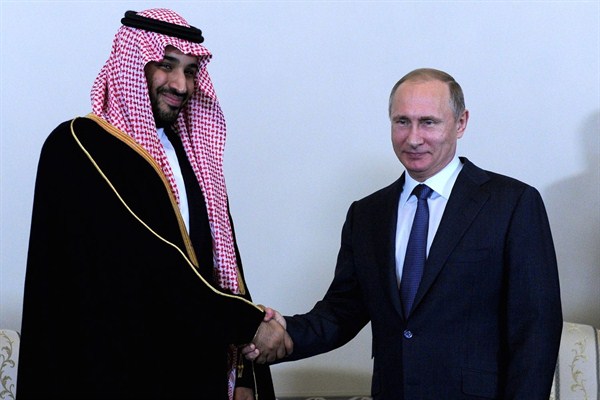Russia’s joint naval exercises with Egypt in the Mediterranean earlier this month put into sharper relief its resurgent ties in the Middle East, where it is steadily reviving a meaningful role for itself. Russia has negotiated a slew of new arms sales and security cooperation agreements, both with Iraq and Egypt; is one of the chief arbiters of Syria’s fate, as a backer of President Bashar al-Assad; and remains an important component of the negotiations on Iran’s nuclear program. Despite a toxic relationship with the West over the crisis in Ukraine, Moscow’s foreign policy is not inherently inimical to U.S. interests, in part because it prizes stability in the Middle East over its disagreements with the West. But its bid to restore influence is tied closely to regional conflicts and the competition between Iran and Saudi Arabia.
Moscow eyes the seismic political events in the Middle East with trepidation. From Russia’s perspective, these disasters are rooted in U.S. foreign policy bungling, from the Iraq War to mismanagement of the Arab Spring and NATO’s intervention in Libya. The Libyan case was transformative for Moscow. Russia’s abstention was necessary for the approval of the United Nations Security Council resolution that authorized the operation, which ultimately resulted in regime change followed by complete state implosion. Russia walked away convinced that not only was the U.S. not a thoughtful actor, but a misguided agent of instability in a complex and dangerous region.
In these U.S. missteps, Russia saw risk, but also opportunity: For years Russian relationships in the region had been static, but after 2010 daylight began to emerge between America and its longtime Arab allies, to Russia’s advantage.

